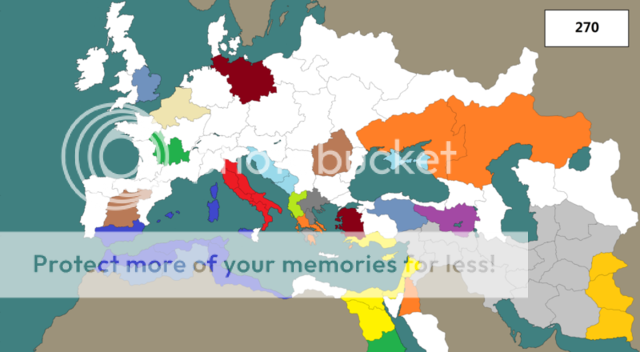Hey guys! I'd like to invite you guys to play in an easy and simplified simulation of the classical world, loosely based around EB.
You can take on a ruler of any nation and expand it through force of arms, allying and attacking other nations as you see fit. You have to be careful so you don't leave your nation without leadership, which could lead it into a civil war and the breakaway of other nations already under your control!
It is being hosted in the Gameroom's subforum here.
Basically you start as one of the possible nations in a turn-based game. Players each send in their turns via PM and then I go to the next turn. Each turn is 10 years so 270 BCE, next turn is 260 BCE, etc. The winner is determined by a score based on standing army and resource/army income numbers. Since alliances = "Don't attack me, you big meanie" you pretty much need to watch your back at all times. During the course of the game leaders die and new countries will probably arise such as Parthia, Bactria, Persia, etc. The game is mostly done by interaction between the different players with each other. Other than that, it is a very simple game. This is a first version which will be more of a test to see how it goes!
Here's the map with the nations and the provinces:
Most nations are still free, so if you are interested, join in and you'd be most welcome!






 Reply With Quote
Reply With Quote
Bookmarks